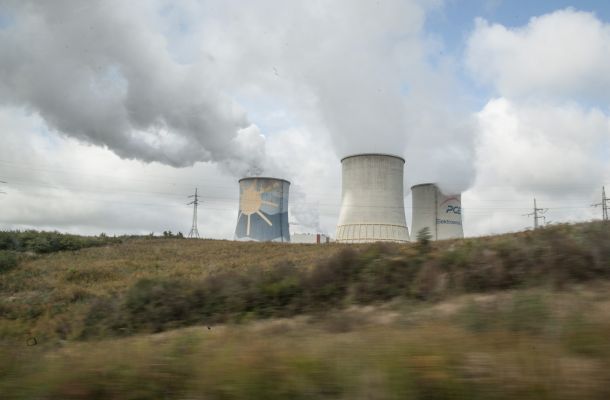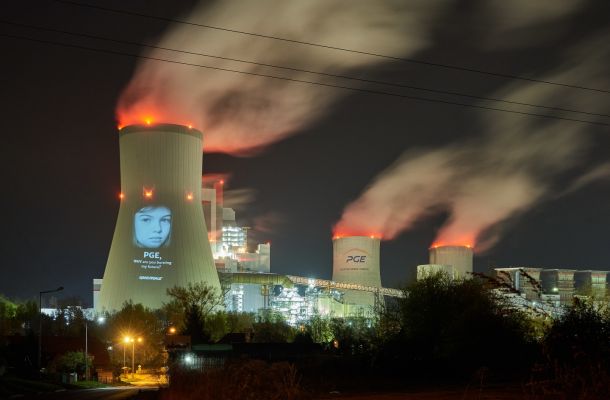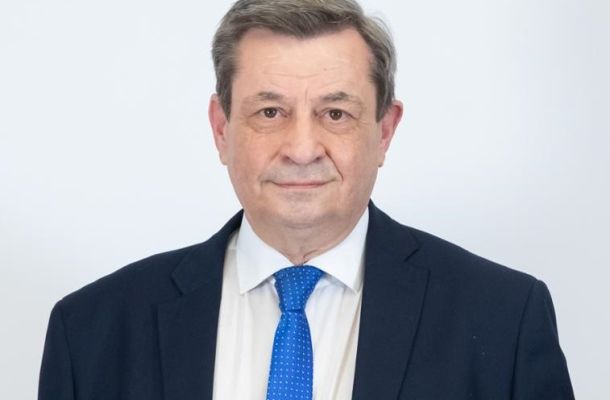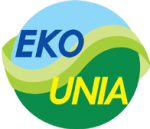The costs of staying with coal
The new power unit in Turów, bulit for PLN 4.3 billion, was shut down after just one month of operation. It is not adjusted to the quality of coal from Turów mine. The complex in Bogatynia is already generating huge costs. At the same time, sustaining its operations deprives the region of the opportunity to benefit from the EU funds for the Just Transition.
1. Nearly 5 billion for damaged block
The Turów block was put into operation on May 15, and the failure occurred on June 16. Since then, it has been out of service. Mateusz Kokoszkiewicz wrote about the failure of the Turów unit for Gazeta Wyborcza. The journalist quotes one of the power plant employees:
“People had been coming to this block to repair the equipment for a long time. The block was operating on a backup system, and all automatic functions had to be turned off as the whole system was poorly executed. The block is not adapted to the quality of coal from Turów mine. The quality of this raw material is too poor for the needs of the new unit [1].
“PGE is avoiding answering questions about the unit’s failure,” reports Wyborcza. Rzeczpospolita says that “PGE is explaining that this is a planned outage and a standard action to ensure continuous and failure-free operation of the unit for the coming years,” but this is contradicted by “the industry” [2]. The costs that will have to be incurred to repair the unit and adapt it to Turów coal are not known.
Huge money earmarked for building and repairing the block should be transferred for the just transition of the region and for creating new jobs. The plan announced by PGE to operate the mine and power plant until 2044 is unrealistic due to climate goals of the European Union and the rising price of CO2 emission allowances. As think-tank Instrat demonstrated, the National Power System can easily function without Turów after 2026[3].
“Unfortunately, almost 5 billion PLN instead of the new unit could have been spent on a fair transformation of the region, thanks to which the inhabitants would benefit and not the companies building this power unit,” comments Katarzyna Kubiczek, project coordinator of the Eco-Union organization.
Sources:
- https://wroclaw.wyborcza.pl/wroclaw/7,35771,27341308,elektrownia-turow-ma-awarie-bo-jest-zle-zaprojektowana-nowy.html
- https://www.rp.pl/Wegiel/307199945-Kopalnia-Turow-rozpoczela-walke--o-przetrwanie.html
- https://instrat.pl/wp-content/uploads/2021/03/Instrat-Droga-do-celu-v1.3.pdf
2. Continuing to operate will costs a lot
Turów’s operation also involves paying for investments to protect the Czechs from further theft of their water by the open pit and dust. The costs are not small. As Barbara Oskińska reports in Parkiet:
“Underground water is to be protected by an anti-filtration screen from potential outflow from the Czech territory towards the mine. In fact, it is a deep hole stretching over 1 km with a special sand-silt mixture. The screen, whose construction will cost PLN 17 million, will start operating in September. Windproof screen, which costs around PLN 20 million, will be a barrier that is meant to protect Czechs from dust. Noise protection will be provided by an earth rampart built along the Polish-Czech border.
That is not enough for the Czechs as they are negotiating money for further investments aimed at eliminating risks connected with the Polish open-pit mining. Originally, the Polish government agreed to pay EUR 40-45 million. However, negotiations are still ongoing” [1].
What is worse, it is not certain that the 17 million screen, which is planned by PGE, will in fact protect the inhabitants of the Czech border region from the loss of water. Dr. Sylwester Kraśnicki, hydrogeologist, pointed out that “the screen minimizes the impact of the opencast, but does eliminate it completely. So, it is difficult to say whether the screen that PGE wants to build will solve the problem” [2]. So, it is possible that further investments will be needed.
Talks with the Czech Republic are still ongoing. The next round is scheduled to begin on Thursday, July 22. For now, the specter of financial penalties has receded. Earlier, the Czechs had asked CJEU to impose a fine of five euro per day on Poland for failing to cease production, as ordered by the CJEU.
Sources:
- https://www.parkiet.com/Surowce-i-paliwa/307199990-Dla-kopalni-Turow-rozpoczal-sie-nowy-etap--walka-o-przetrwanie.html
- https://oko.press/w-jaki-sposob-turow-odsysa-wode-czechom-tlumaczymy-krok-po-kroku/
3. Transformation profitable for everyone
Turów’s operation already require gigantic financial outlays. Extending it beyond 2026 or 2030 will mean further costs. Above all, it will deprive the region of the opportunity to benefit from huge money from the Just Transition Fund. In June 2021, the European commissioner for environment, oceans and fisheries, Virginijus Sinkevičius told TVN24:
“The Just Transition Fund is available to Poland in a significant part. However, the Polish authorities were the one who decided to extend mining until 2044 which is not in line with the objectives of the Just Transition Fund and which excludes support for the Jelenia Góra region with Turów and Bogatynia, where no transformation is planned before 2030. The Polish government still has a chance to propose an earlier date to move away from coal which must be consistent with the Just Transition Fund, and then the funds will be available.”
Source:
- https://tvn24.pl/biznes/ze-swiata/virginijus-sinkevicius-o-kopalnii-turow-w-rozmowie-z-maciejem-sokolowskim-program-7-dni-unia-5132284
Popularne Artykuły
PGE myths vs reality
Why are you burning our future?
Polish prime minister dismisses for the truth about Turów
About Us
Our organizations jointly counteract the expansion of the open-cast Turów lignite mine in Poland for the benefit of local communities, nature and climate. We support civic activities undertaken by the international community at the interface of the Czech Republic, Germany and Poland. We strive to make the lignite-dependent Bogatynia enter the path of energy transition as well as economic and social transformation.





